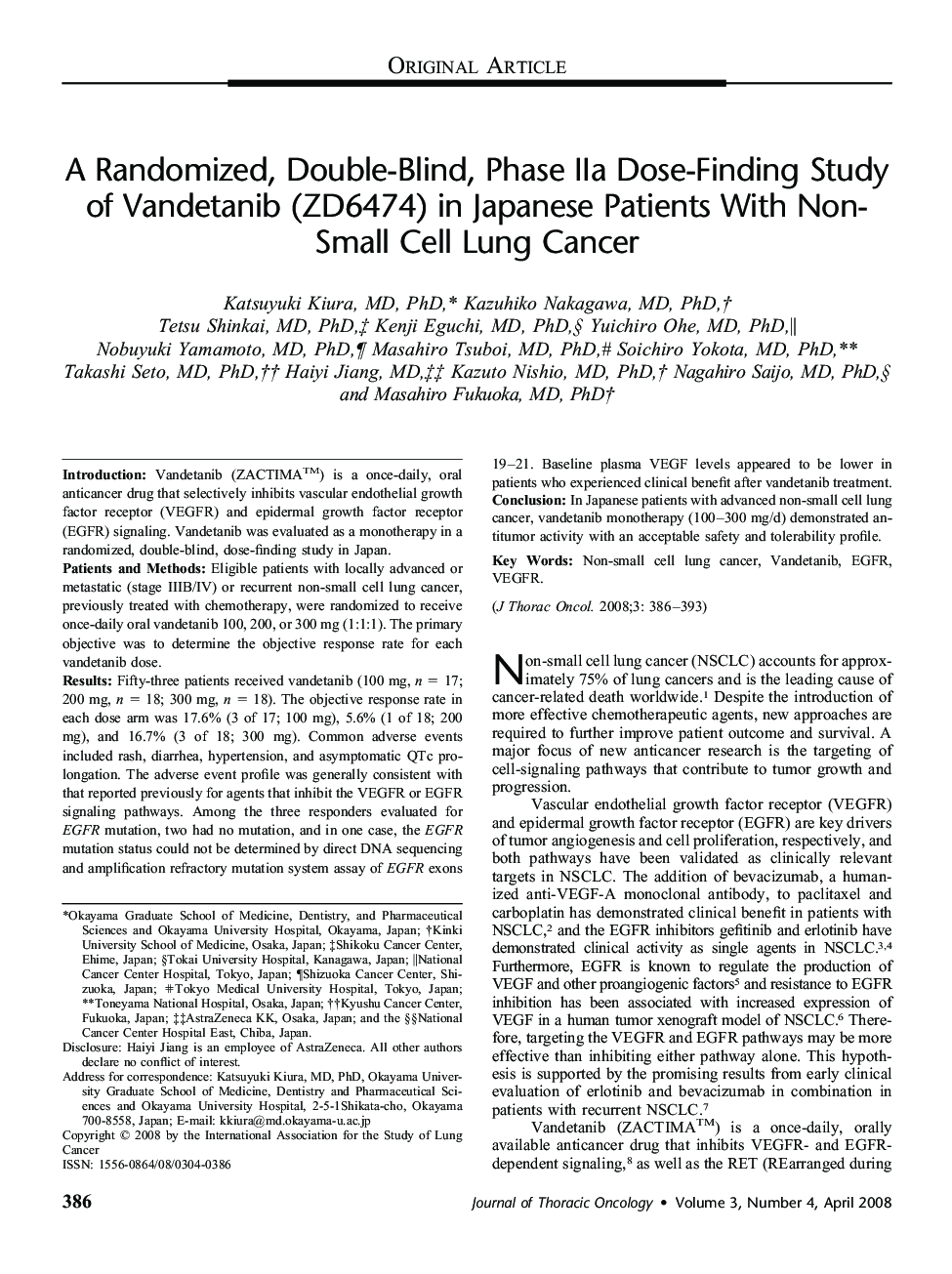| Article ID | Journal | Published Year | Pages | File Type |
|---|---|---|---|---|
| 3992543 | Journal of Thoracic Oncology | 2008 | 8 Pages |
IntroductionVandetanib (ZACTIMATM) is a once-daily, oral anticancer drug that selectively inhibits vascular endothelial growth factor receptor (VEGFR) and epidermal growth factor receptor (EGFR) signaling. Vandetanib was evaluated as a monotherapy in a randomized, double-blind, dose-finding study in Japan.Patients and MethodsEligible patients with locally advanced or metastatic (stage IIIB/IV) or recurrent non-small cell lung cancer, previously treated with chemotherapy, were randomized to receive once-daily oral vandetanib 100, 200, or 300 mg (1:1:1). The primary objective was to determine the objective response rate for each vandetanib dose.ResultsFifty-three patients received vandetanib (100 mg, n = 17; 200 mg, n = 18; 300 mg, n = 18). The objective response rate in each dose arm was 17.6% (3 of 17; 100 mg), 5.6% (1 of 18; 200 mg), and 16.7% (3 of 18; 300 mg). Common adverse events included rash, diarrhea, hypertension, and asymptomatic QTc prolongation. The adverse event profile was generally consistent with that reported previously for agents that inhibit the VEGFR or EGFR signaling pathways. Among the three responders evaluated for EGFR mutation, two had no mutation, and in one case, the EGFR mutation status could not be determined by direct DNA sequencing and amplification refractory mutation system assay of EGFR exons 19–21. Baseline plasma VEGF levels appeared to be lower in patients who experienced clinical benefit after vandetanib treatment.ConclusionIn Japanese patients with advanced non-small cell lung cancer, vandetanib monotherapy (100–300 mg/d) demonstrated antitumor activity with an acceptable safety and tolerability profile.
